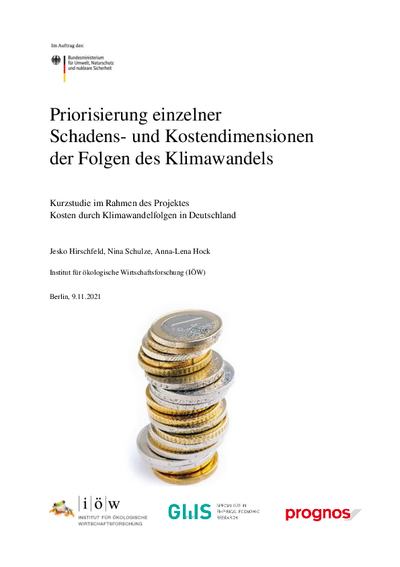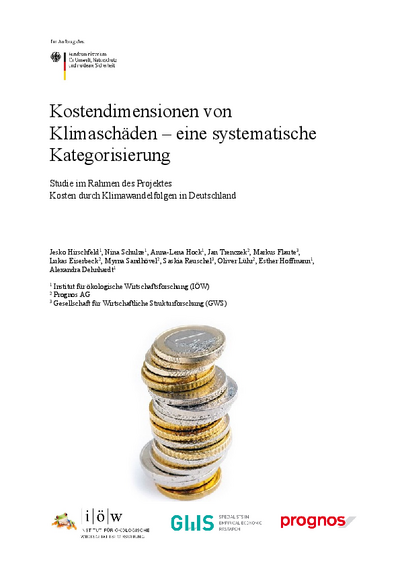Costs of Climate Change Impacts in Germany
Climate change has arrived in Germany – noticeably and evidently. The blooming period occurs two weeks earlier than several years ago, exceptional heat and drought events are becoming increasingly less exceptional. This results inter alia in economic losses due to crop failures, repair costs of infrastructure damages and increasing health expenditures. Yet, climate change damages and adaptation costs are so far significantly less explored than avoidance of greenhouse gases or the economic impacts of climate protection measures.
Against this background, the project “Costs of Climate Change Impacts in Germany” conducts an exploratory, systematic and comprehensive analysis and estimation of follow-up costs for the German economy. Beside the costs of climate damages due to extreme weather, events as well as the gradual progress of climate change (i.e. damage costs), this includes the costs of adaptive measures (i.e. adaptation costs). The overall objective is to make the dimensions of past and future costs of climate change visible and to discuss the findings with societal actors. Based on reliable data and information, comprehensible conclusions can be drawn about the distribution of risks and costs along various spatial, sectoral and social dimensions, and the relevance of individual climate impact chains can be highlighted. In this context, cost-benefit analyses of climate change damages and adaptation measures can support public and private decision-makers to identify adaptation policies for a climate resilient Germany. The results discussed with experts are presented in a target group-oriented manner according to the fields of activity.





